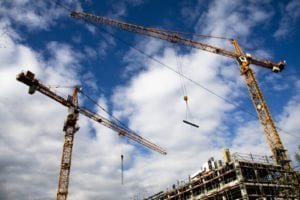 In a constantly evolving world, Africa and its 34 least developed countries (LDCs) urgently need to find the best ways to industrialise their economies to avoid being further marginalised and excluded from the global economy. The answer lies in upscaled infrastructure and regional integration.
In a constantly evolving world, Africa and its 34 least developed countries (LDCs) urgently need to find the best ways to industrialise their economies to avoid being further marginalised and excluded from the global economy. The answer lies in upscaled infrastructure and regional integration.
For over a decade sub-Saharan African economies have expanded at an average rate of about 5% per year. This was largely spurred on by the commodities boom in China as it rapidly urbanised. But as China’s economic growth has slowed, so has the demand for Africa’s commodities, stifling Africa’s growth trajectory.
One of the main reasons for concern is that Africa’s manufacturing industry has largely missed out on “a boom”.
“The general view is that Africa is de-industrialising and has skipped a vital industrial revolution like Asia experienced in the 1970s; which is critical for job creation,” says Nigel Gwynne-Evans, Chief Director for African Industrial Development with the Department of Trade and Industry (DTI).
“Africa has the lowest global percentage of productivity in manufacturing and the lowest employment rates in the world. The big concern is that we are already jumping to a services-based economy without creating a platform for manufacturing.”
The adoption of the 2030 Agenda for Sustainable Development and the Sustainable Development Goals (SDGs) as well as the African Union Commission’s 2063 Agenda and the COP 21 Paris climate change agreement in 2015, have given new impetus to the call for industrialisation to transform Africa, especially in its LDCs.
Why industrialisation matters
Through the adoption of the sustainable development goals (SDGs) – particularly on industry, innovation and infrastructure – the international community has recognised the importance of inclusive and sustainable industrial development for economic growth because of its multiplier effect on all economic sectors.
“Rarely has a country progressed and become developed without sustained structural transformation from an agrarian or resource-based economy towards higher productive agriculture and a sophisticated industrial or service-based economy,” says a 2015 report to the China G-20 Development Working Group by the United Nations Industrial Development Organisations (UNIDO).
“Africa is currently highly fragmented with small markets and small economies. If we are able to build larger regional markets, through regional integration, then we could create regional trading blocks that have the economies of scale to catalyse industrialisation in various regions. This is the current focus of the regional economic communities like SADC, ECOWAS, and the EAC, and recent initiatives to create a continental-wide Free Trade Agreement,” says Gwynne Evans.
“In addition this requires a dramatically upscaled focus on improved infrastructure of all forms – road, rail, water and energy – to provide the conditions for growth.”
Regional integration in building large scale cross-border infrastructure that will unlock Africa’s industrialisation capabilities is one of the topics of discussion taking place at next month’s
Infrastructure Africa Business Forum in Sandton, Johannesburg.
Nigel Gwynne-Evans, and a host of other African infrastructure experts will be attending and speaking at Africa’s biggest infrastructure symposium.
 In a constantly evolving world, Africa and its 34 least developed countries (LDCs) urgently need to find the best ways to industrialise their economies to avoid being further marginalised and excluded from the global economy. The answer lies in upscaled infrastructure and regional integration.
In a constantly evolving world, Africa and its 34 least developed countries (LDCs) urgently need to find the best ways to industrialise their economies to avoid being further marginalised and excluded from the global economy. The answer lies in upscaled infrastructure and regional integration.






